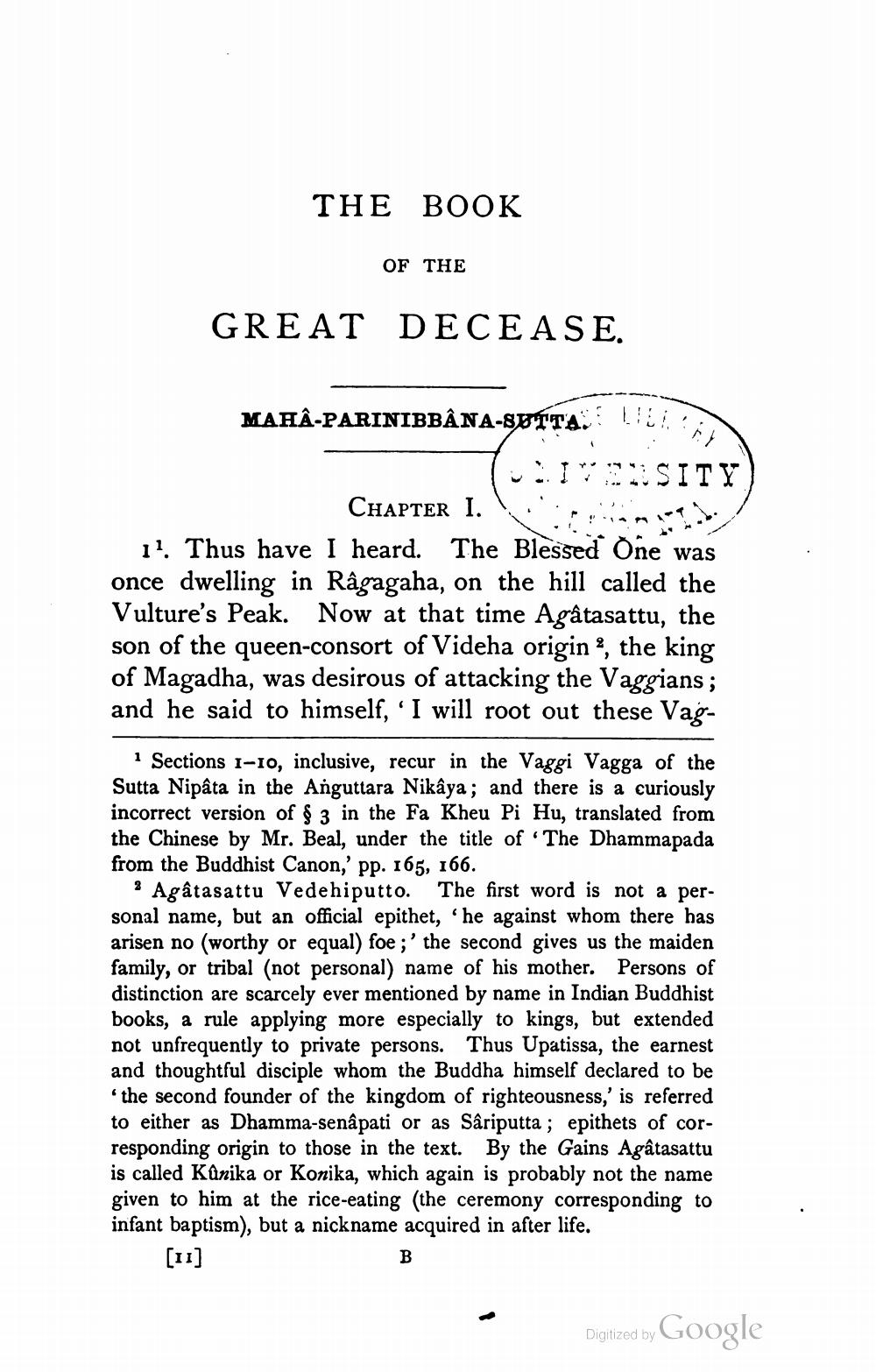________________
THE BOOK
OF THE
GREAT DECEASE.
MAHA-PARINIBBÂNA-SUTTA !!!
TURITESITY
CHAPTER I. Li mita aby 11 Thus have I heard. The Blessed One was once dwelling in Râgagaha, on the hill called the Vulture's Peak. Now at that time Agâtasattu, the son of the queen-consort of Videha origin?, the king of Magadha, was desirous of attacking the Vaggians; and he said to himself, 'I will root out these Vag
i Sections 1-10, inclusive, recur in the Vaggi Vagga of the Sutta Nipâta in the Anguttara Nikâya; and there is a curiously incorrect version of $ 3 in the Fa Kheu Pi Hu, translated from the Chinese by Mr. Beal, under the title of The Dhammapada from the Buddhist Canon,' pp. 165, 166.
* Agâtasattu Vedehiputto. The first word is not a personal name, but an official epithet, he against whom there has arisen no (worthy or equal) foe;' the second gives us the maiden family, or tribal (not personal) name of his mother. Persons of distinction are scarcely ever mentioned by name in Indian Buddhist books, a rule applying more especially to kings, but extended not unfrequently to private persons. Thus Upatissa, the earnest and thoughtful disciple whom the Buddha himself declared to be
the second founder of the kingdom of righteousness,' is referred to either as Dhamma-senâpati or as Sâriputta ; epithets of corresponding origin to those in the text. By the Gains Agâtasattu is called Künika or Konika, which again is probably not the name given to him at the rice-eating (the ceremony corresponding to infant baptism), but a nickname acquired in after life.
[11]
Digitized by Google




